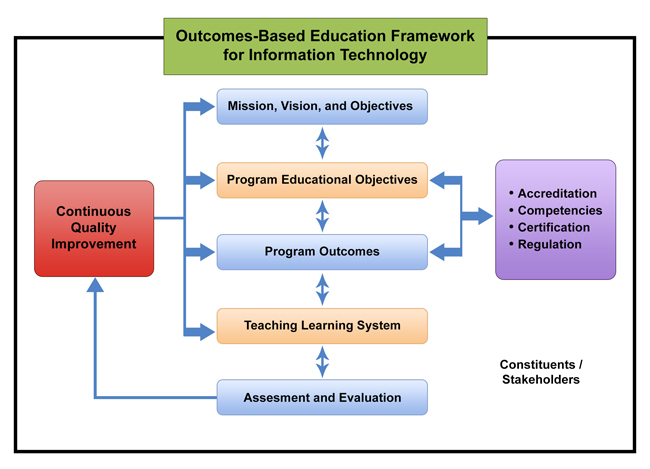UE’s Information Technology program has the primary objective of meeting the high demand for professional degrees in the strategy, development and administration of integrated computing and management systems.
Information Technology (IT) is the term used to describe the convergence of information systems and communications systems, and embodies elements of Computer Science and Management. IT emphasizes the management and performance of information systems planning, development, implementation and operation. It also includes the development of the information technology infrastructure to support the processes necessary to achieve organizational objectives.
The objective of this program is to provide students with a combination of knowledge, hands-on experience, and application of theory to information issues. The program keeps pace with changing technology and related business practices by offering courses in areas such as systems analysis, web applications, several programming languages, and graphical user interface design.


PROGRAM EDUCATIONAL OBJECTIVES
The University will produce Information Technology graduates who are:
professionally competent and globally competitive;
equipped with technical competencies and are able to contribute to the country’s social and economic progress;
lifelong learners imbued with the UE core values of Excellence, Integrity, Professionalism, Teamwork, Commitment, Transparency, Accountability and Social Responsibility.
STUDENT OUTCOMES
Ability to apply knowledge of computing, basic science and mathematics appropriate to the discipline and the program educational objectives.
Ability to analyze a problem, and identify and define the computing requirements appropriate to the problem’s solution.
Ability to design, implement and evaluate the capability of a computer-based system, process, component or program to meet desired needs.
Ability to function effectively on teams to accomplish a common goal.
Ability to understand professional, ethical, legal, security and social issues and responsibilities.
Ability to communicate effectively with a range of audiences.
Ability to analyze the local and global impact of computing on individuals, organizations and society
Ability to recognize the need for and ability to engage in continuing professional development.
Ability to use techniques, skills and tools necessary to current computing practice.
THE BS INFORMATION TECHNOLOGY CURRICULUM
The curriculum emphasizes quantitative and communications skills as well as providing a foundation in business environments. Upon graduation, students will receive the degree of Bachelor of Science in Information Technology.
Graduates of this program will qualify for employment as entry-level computer software applications engineers, computer and information systems managers, computer systems analysts, network systems professionals and computer systems software engineers.
BSIT students may specialize in technology or management domains including Network and Systems Engineering, Software Engineering, Information Systems Administration and Telecommunications.
System Administration
This specialization is for students wishing to focus on the administrative professional coupled with the technical skills needed to develop highly skilled IT decision-makers. In addition, students will get to understand and apply the theories and strategies related to the areas of planning, organizing, managing, and validating information systems.
Students who successfully complete the specialization will:
Network and System Administration
This specialization is for students to focus on how to effectively plan, implement, administer, and support various size networks in the enterprise. This specialization provides the groundwork for professionals to pursue highly recognized industry certification.
Students who successfully complete the NSE specialization will:
Software Engineering
This specialization is for students choosing to focus on web programming skills and software development. Students will be able to evaluate business systems and processes and recommend software solutions which meet organizational needs and goals; and develop the skills and knowledge required of an analyst-programmer for the research and development of web and computer-based applications.
Students who successfully complete the Software Engineering specialization will:
Telecommunications
This specialization is for students choosing to focus on building skills in the rapidly expanding telecommunication and wireless communications and network systems.
Students who successfully complete the Telecommunications specialization will:
CAREER OPPORTUNITIES
Our technology and design programs will prepare you to pursue opportunities in database management, network design and administration, programming, website development, and information architecture. Our visual arts programs will give you the integrated design and technology background necessary for consulting and possibly beginning your own technology or design services business. You can focus on an area of study that best fits your career and educational goals.
UE’S IT ACHIEVEMENTS
FACULTY
Dr. Maria Amelia E. Damian – OIC, Information Technology
Faculty Members
UE College of Engineering-Caloocan
Angelita D. Guia
Dean
Dr. Paraluman G. Sim
Associate Dean-Engineering
Dr. Maria Amelia E. Damian
Associate Dean-Computer Studies and Systems
Engr. Edelito A. Handig
College Secretary
UE College of Engineering-Caloocan Dean’s Office
✆ Dean: (632) 8-367-4572 local 166
✆ Direct Line: (632) 8-365-4121
Associate Dean and College Secretary:
✆ 8-367-4572 local 167
✆ Direct Line: 8-365-4121
General UE CEng’g Caloocan email address:
✉ ceng.cal@ue.edu.ph
Department Chairs Office:
✆ UE Caloocan Trunkline 8-367-4572
✆ CE Department: local 171
✆ CpE Department: local 172
✆ ECE Department: local 181
✆ EE Department: local 170
✆ ME Department: local 169
✆ CS/IT Department.: local 200
Social Info

